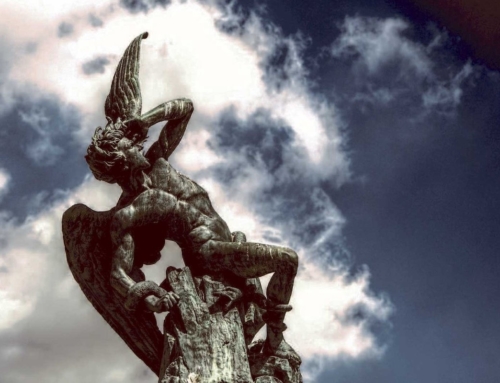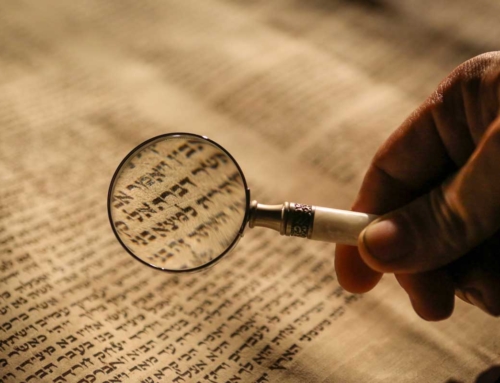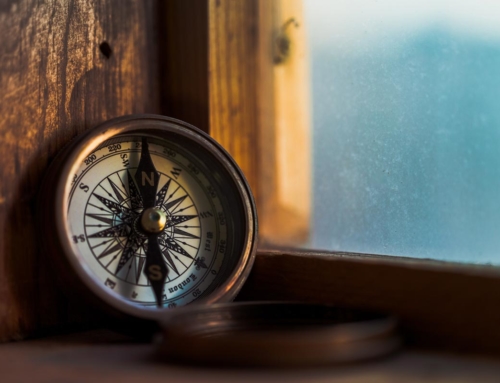Two events coalesced this week that set my mind on a particular issue. The events were Columbus Day and the ongoing presidential race. I’ve noticed that each year as Columbus Day arrives, so too do the historical revisionists (or correctionists, depending upon your opinion). Honestly, I haven’t done the necessary homework to have an opinion about the revisions/corrections concerning Columbus, but I have noticed the wider trend of historical deconstruction of nearly all major historical persons and events that takes place in every form of writing from scholarly journals and books to Facebook and Twitter.
For the record, I have no problem with questioning the “received” history found in most textbooks. Scholarship is nothing if not a rigorous pursuit of the truth even in the face of prevailing opinions. What I find disconcerting is the need to deconstruct our “received” history for the sake of deconstruction itself. In other words, even lacking sufficient evidence or convincing arguments, it seems to me that most historians (both professional and armchair) these days are bent on “exploding myths” and “redefining” the history many of us learned growing up simply for the sake of doing so. This is a pursuit of intellectual rebellion, not truth.
Of course, this historical deconstruction is most often aimed at the so-called heroes of western culture. Everyone from Jesus to Abraham Lincoln to John F. Kennedy has been re-examined, redefined, and re-presented dozens (if not hundreds or even thousands) of times over. More often than not, these “studies” result in a much more negative, decidedly unheroic portrait of many western historical icons. Occasionally, this more negative assessment my be warranted by the facts, but I suspect that most of the time our heroes have already been demoted in the minds of revisionists before the rigorous work of research has even begun. What this means is that there are very few heroes left for us to admire and emulate.
I suspect that while in the past our textbooks tended to highlight the achievements and positive qualities of our heroes while largely ignoring their mistakes and faults, today’s textbooks tend to magnify the flaws and foibles of the same men and women while ignoring or even denying their achievements and laudable character traits. Quite frankly, it is difficult to imagine many of them, given the standards foisted upon these men and women, escaping with any shred of dignity. Setting aside issues of poor or faulty research, we often judge our historical heroes with impossibly high standards or according to modern expectations that they can’t possibly have lived up to given their cultural biases and contexts. For instance, many of America’s earliest heroes have been dismissed as unworthy of admiration because they owned slaves. Of course, these men were wrong for participating in such an immoral institution and no one need hide or avoid that conclusion; nevertheless many of these flawed persons accomplished great and good things in their lives. I shudder to think of what terrible evil we may be participating in today without even realizing it. My hope is that future generations will be able to do what ours often refuses to do: recognize evil without being blinded to good. What has all this to do with presidential politics? Everything. Ours has become a culture devoid of heroes. It is not that heroic men and women or at least admirable men and women do not exist. It is that we have been trained, like Pavlov’s dogs, to react with such revulsion at the sight of genuine character flaws and past failures that we are no longer capable of having heroes. The only heroes left are those few historical persons who, usually for the sake of political correctness, remain beyond the reach of criticism. I see this inability reflected in my own and others’ negative attitudes toward the candidates running for office. I hear liberals, conservatives and independents all decrying the lack of a “good” or “qualified” or “worthy” candidate. I must admit that I’m not overly thrilled with either major-party candidate (or minor-party candidate, for that matter) running for the highest office in the land. At the same time, I also suspect that my lack of excitement is fueled more by the fact that I too have been infected with this hero-hate that masquerades as idealism. I’d like to think that I have high standards rather than impossibly high standards; however, Columbus Day has reminded me that I live in a culture of impossibly high standards – at least when it comes to choosing (or rejecting) our heroes. That mindset has affected our ability to side with a political candidate. After all, all politicians are crooked, so by definition anyone running for office is unworthy of our vote.
Maybe there’s a better way. Maybe we should set aside our deconstructive tendencies and instead of asking which candidate is the least problematic or least dangerous, or the lesser of two (or three or four) evils we should ask which candidate most closely represents our own convictions and is capable of doing the job well. Perhaps we should choose, not the ideal candidate, but the (relatively) good candidate. Perhaps we should allow our heroes to have flaws and allow those with flaws to become heroes – or at least worthy of our votes.




